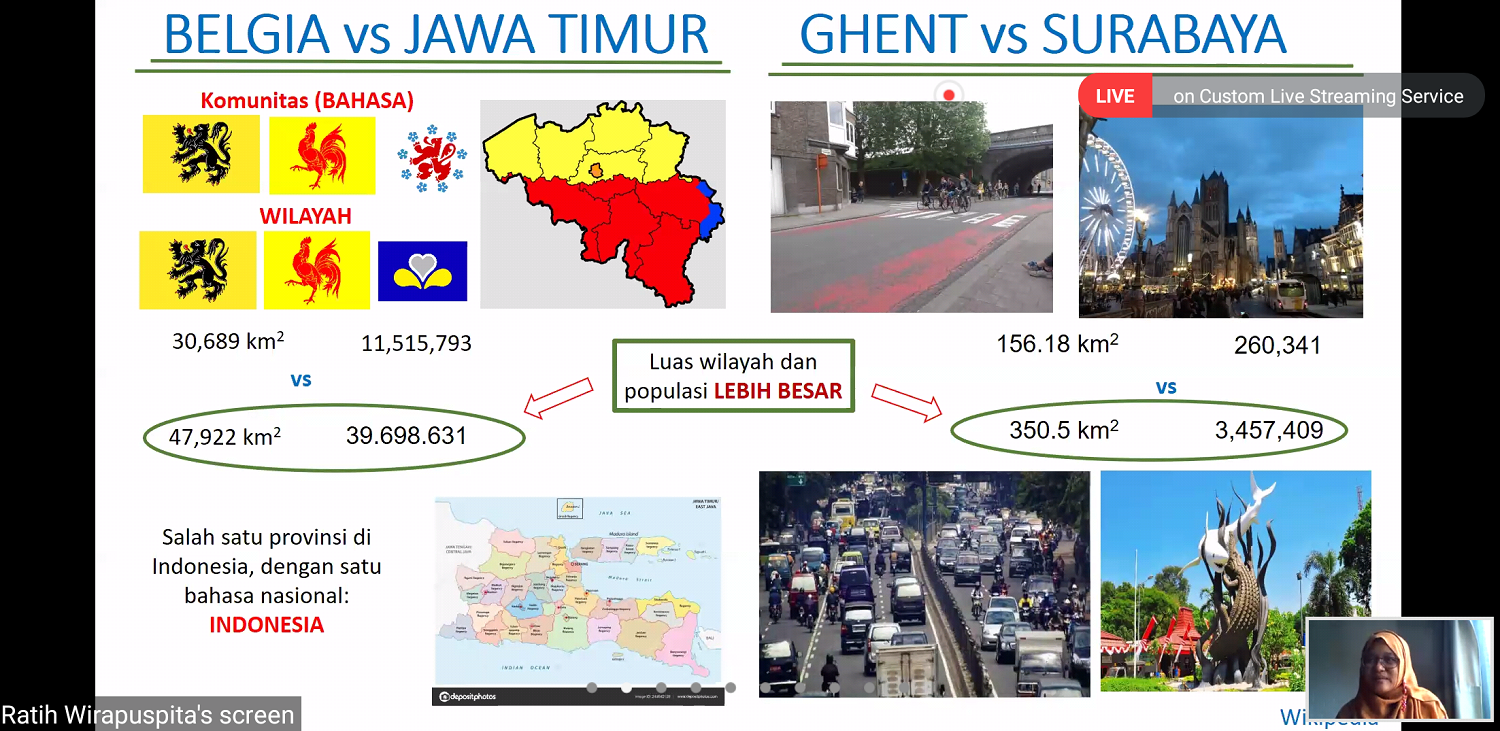UNAIR NEWS – Universitas Airlangga (UNAIR) Alumni Association (IKA) Commissariat of Faculty of Public Health (FKM) held another online discussion, “Alumni Stories in 6 Countries Facing Covid-19 Pandemic” on Sunday, May 3, 2020. The discussion was done via zoom meeting application broadcasted live through FKM YouTube channel.
The discussion was attended by around 300 participants with speakers from FKM alumni abroad studying in 5 countries, Australia, Georgia, Thailand, Belgium and Hungary.
The first story was from this country, Indonesia, by Tutut Indra Wahyuni, S.K.M., M.Kes, Head of Food Health Subdivision, Directorate of Environmental Health, Ministry of Health, Republic of Indonesia, Jakarta. Tutut who is involved in PSBB Ministerial Health Regulation and the preparation of various guidelines related to Covid-19 policy told about DKI Jakarta readiness to prepare for the implementation of PSBB policy quickly, in the form of guidelines and things that must be considered during the PSBB.
” DKI Jakarta government also invite communities at RT / RW level in tackling the spread of Covid-19 by preparing its guidelines and technical guidelines,” Tutut said.
The discussion session was then continued by Andini Pramono, S.K.M, M.Kes, who is currently pursuing a Ph.D in Australian National University, Canberra, Australia. She described how Australian government and the state of Canberra responded to Covid-19.
There were some good lessons, on how the Australian government’s rapid response anticipates Covid-19 by conducting effective and consistent communication. Community trust in the government is quite good, supported by a good level of public health literacy.
The pandemic story continued to Hungarian State in Central Europe, delivered by Abdu Naf’an, S.K.M (M.Sc in Public Health Student, University of Debrecen, Medical School, Hungary ). In Hungary, the restriction policy is massively disseminated through advertisements on TV, social media, and public transportation.
According to Abdu, restrictions on activities in Hungary relating to Covid-19 are accompanied by the application of fines. The social and economic impact was also felt in Hungary, mass layoffs, some hospitality industries were also affected, schools and campuses also stopped activities until an unspecified time.
Then, shifted to Belgium, in the City of Ghent, there was Ratih Wirapuspita, S.K.M, M.PH (PhD Student in the Department of Public Health & Primary Care, Faculty of Medicine & Health Science, Ghent University, Belgium). Ratih is an FKM UNAIR alumna currently works as FKM lecturer at Mulawarman University Samarinda.
Ratih said that there were fines to three month to two year prison sentences for those who violated the lockdown policy. Stigma and discrimination are not visible in Ghent.
” Support from the community is quite good, with mutual assistance, both cloth masks, food and financial donations for students,” said Ratih.
The condition of Thailand was explained by Budi Eko Siswoyo, S.K.M, M.PH (PhD Student, Mahidol University, Salaya, Thailand | Researcher, International Project and Research Unit, Mekong Basin Disease Surveillance Foundation Bangkok – Thailand). Facing the Covid-19 pandemic, the Thai government implemented some policies, in addition to curfew both international and domestic transmission, the government also set up a Covid-19 health care system, a healthy living campaign, social and economic security scheme for affected communities.
Then, the last alumna sharing stories about the Covid-19 pandemic was Argita Dyah Salindri, S.K.M, M.PH (PHd Student, Georgia State University, Atlanta, USA) who is currently studying at National Center for Tuberculosis and Lung Disease, Tbilisi, Georgia. The first case found there was on February 27, 2020 ( imported case ), and on March 28 a local transmission case was found .
On March 21, 2020, the administration declared a state of emergency condition, which was enforced until April 21, 2020, but extended to May 22, 2020. By imposing a restriction policy (nationwide curfew, regional lockdown and movement restriction ) as well as stay at home campaigns and mask use.
From the discussion, IKA FKM formulated several recommendations regarding the handling of Covid-19. Learning from stories and experiences from 5 other countries, it is hoped that the recommendation can be applied in Indonesia to suppress the Covid-19 pandemic. (*)
Author: Ulfah Mu’amarotul Hikmah
Editor: Binti Q Masruroh





